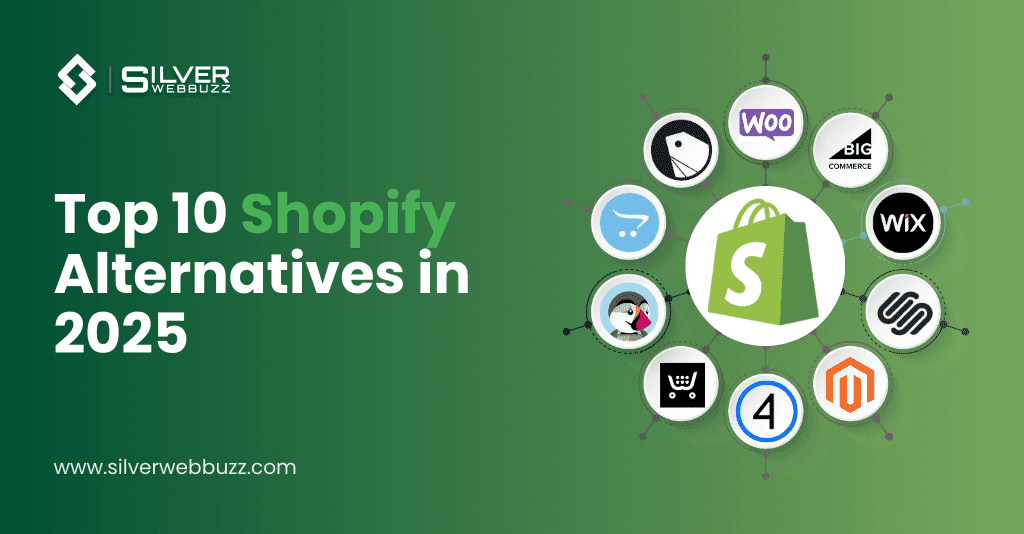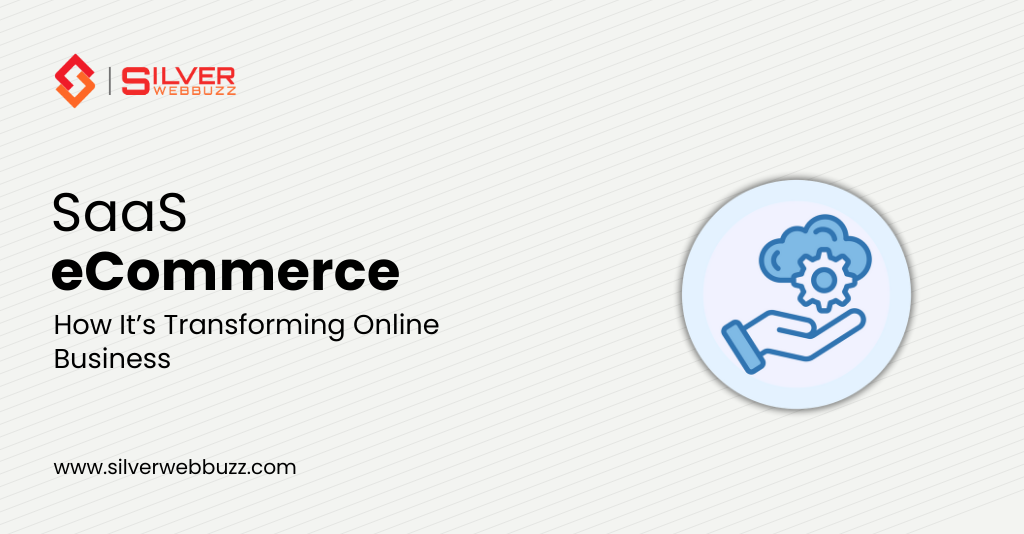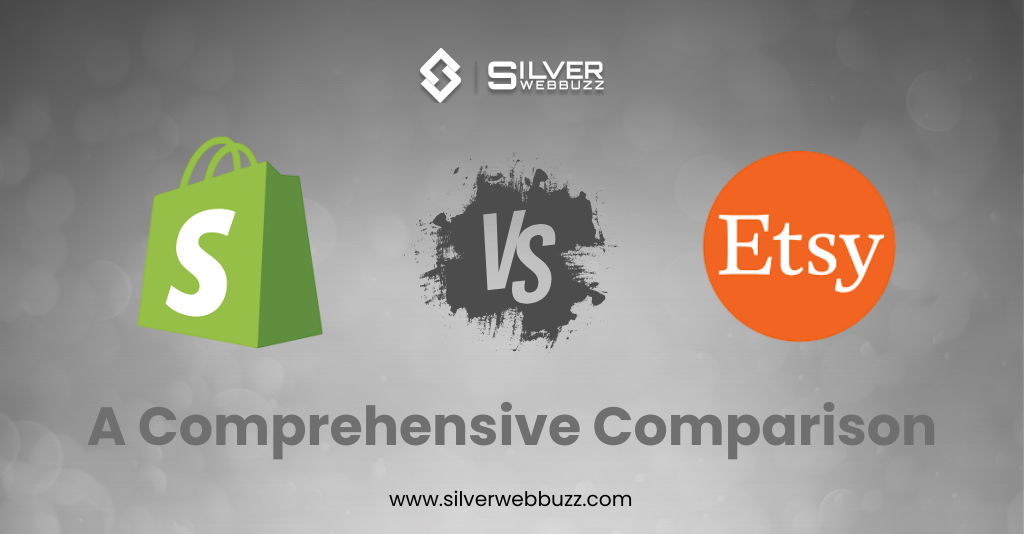When it comes to launching an eCommerce business, Shopify is often one of the first platforms that come to mind. Its ease of use, comprehensive feature set, and vast ecosystem of apps and integrations have made it a popular choice among entrepreneurs and enterprises alike. However, Shopify isn’t the perfect fit for everyone. That’s why more and more businesses are exploring Shopify Alternatives to better meet their unique needs.
Whether you’re facing limitations in customization, seeking better pricing models, or looking for more control over your online store, there are many compelling Shopify competitors worth considering in 2025. This guide explores why you might want to explore alternatives to Shopify, the key factors to keep in mind when making your decision, and a deep dive into the best platforms currently available.
Why Should You Consider a Shopify Alternative?
While Shopify offers many benefits, it may not be the ideal platform for every business. Here are some common reasons why companies look for Shopify alternatives:
1. Cost and Transaction Fees
Shopify charges monthly subscription fees along with additional transaction fees unless you use their own payment gateway. For businesses with tight margins, these costs can add up quickly. Moreover, as your business grows, you might find yourself upgrading to higher-priced plans or paying for expensive third-party apps. Exploring alternatives to Shopify can help reduce ongoing expenses while still offering similar or even better features.
2. Limited Customization
Even though Shopify offers themes and apps, it’s not as flexible as some open-source platforms. You may find it hard to customize your store without hiring a Shopify developer. Some users report frustration over Shopify’s Liquid templating language and its restrictions compared to platforms built on PHP or other common web technologies.
3. Control and Ownership
Shopify is a hosted platform, meaning you have limited control over your server, data, and source code. Businesses looking for full ownership often seek alternatives to Shopify that offer self-hosting options or open-source codebases like WooCommerce, Magento, or PrestaShop.
4. Platform Dependency
Relying on a single platform can be risky. If Shopify changes its pricing or policies, you may be stuck. That’s why many prefer Shopify competitors with more open ecosystems. Owning your technology stack can give you peace of mind and more control over your operations.
5. Advanced Features
Some advanced eCommerce features like multi-store capabilities, B2B functionality, or advanced SEO options may not be available or require expensive plugins on Shopify. As a result, more complex operations might require switching to Shopify alternatives that are better equipped to handle these needs natively.
Factors to Consider When Choosing a Shopify Alternative
Before jumping into any of the Shopify alternatives, you need to consider the following factors:
1. Budget
Different platforms come with different pricing models. Consider your budget and compare it to the features offered. Self-hosted platforms might offer lower long-term costs but may require more investment upfront for setup and maintenance. Some platforms charge for add-ons, themes, and integrations, which can increase the total cost.
2. Customization and Flexibility
How much control do you need over the design and functionality of your store? Platforms like WooCommerce and Magento offer extensive flexibility and allow for deep customizations. In contrast, hosted platforms such as Squarespace and Wix may offer limited options in return for simplicity and ease of use.
3. Ease of Use
For non-technical users, ease of use is crucial. Consider whether the platform offers drag-and-drop builders or requires technical skills. Shopify is known for ease of use, so make sure the Shopify alternatives you’re exploring provide a similar or better user experience.
4. Scalability
Choose a platform that can grow with your business. Some platforms are great for startups but may struggle with enterprise-level traffic and transactions. Consider whether the platform supports features like inventory management, multichannel selling, and performance optimization.
5. SEO and Marketing Tools
Good SEO features are essential for driving traffic. Ensure your chosen platform has robust SEO and marketing integrations. Some platforms like WooCommerce offer advanced SEO capabilities right out of the box, while others may require third-party tools.
6. Support and Community
Does the platform offer 24/7 support? Is there a strong community or a pool of experienced developers to hire from? You may want to work with a Shopify development company like Silver WebBuzz to access technical support or custom development services.
7. Integration and Plugins
Look for platforms that integrate well with your existing tech stack and offer a wide range of plugins. The more integrations available, the easier it will be to automate workflows and streamline business operations.
| Platform | Price | Ease of Use | Customization | Best For |
|---|---|---|---|---|
| wooCommerce | Free + Hosting, Medium | Medium | High | WordPress User |
| BigCommerce | $29.95+/mo | High> | Medium | Growing Business |
| Wix eCommerce | $27+/mo | High | Medium | Beginner & Small Stores |
| SquareSpace Commerce | $23+/mo | High | Medium | Creative & Designers |
| Magento | Custom | Low | Very High | large Enterprise |
| Shift4shop | Free Plan | Medium | Medium | Budget Conscious Stores |
| Ecwid | Free-$99+/mo | High | Medium | Add-on Storefronts |
| Prestashop | Free+Hosting | Medium | High | Developers & SMBs |
| OpenCart | Free + Hosting, Medium | Medium | High | Custom Solutions |
| Shopline | Custom | High | Medium | Asian Markets |
Top 10 Shopify Alternatives in 2025 (Ranked and Explained)
Are you looking for an eCommerce platform that fits your unique business needs better than Shopify? While Shopify is a leading name in the eCommerce space, it may not be the ideal solution for everyone due to its pricing, limited flexibility, or customisation control. There are alternatives:
1. WooCommerce
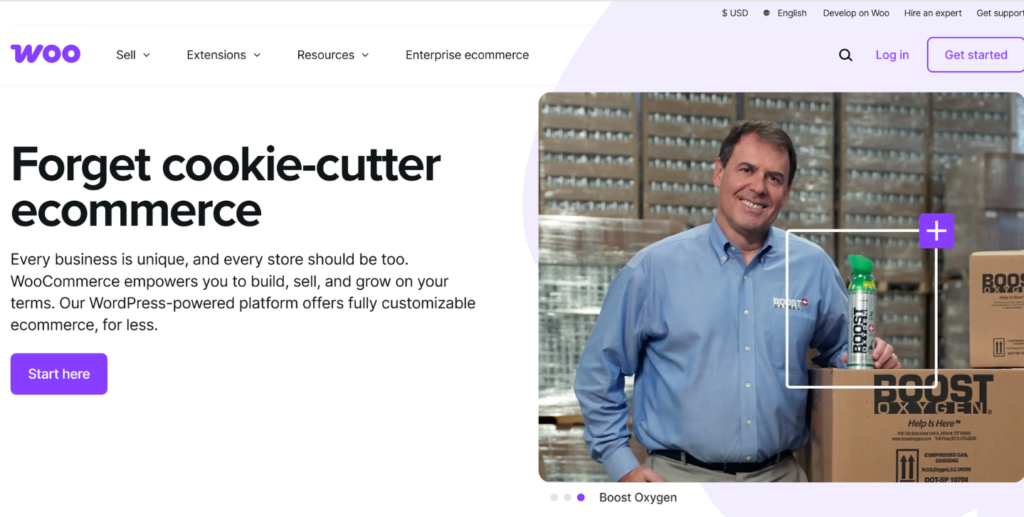
Best For: Businesses already using WordPress or seeking complete customization and control
WooCommerce is one of the most popular open-source eCommerce platforms. Built on WordPress, it provides unmatched flexibility, making it perfect for businesses that want to customize every aspect of their store.
Tip: WooCommerce is a great option for those familiar with WordPress. Development companies like Silver WebBuzz offer WooCommerce development services for fully customized solutions.
Woocommerce vs Shopify: Which Platform is Right for Your Online Store?
2. BigCommerce
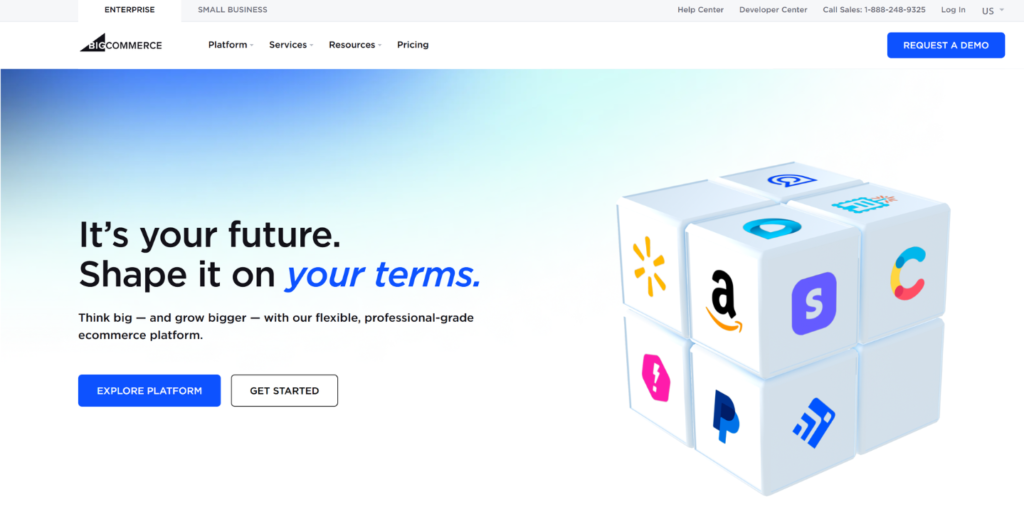
Best For: Scaling businesses with large catalogs and multi-channel sales
BigCommerce is a powerful, fully hosted eCommerce solution and a direct competitor to Shopify. It comes with more out-of-the-box features and is optimized for scalability.
Tip: BigCommerce is ideal for growing or enterprise-level businesses. Silver WebBuzz can help with BigCommerce development and migration services.
3. Wix eCommerce
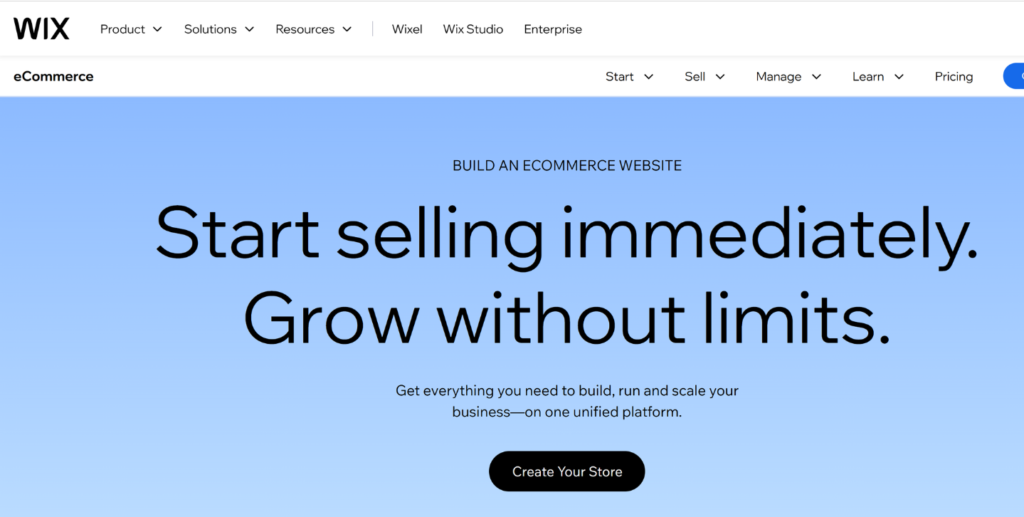
Best For: Solopreneurs and small businesses wanting an easy setup
Wix is widely known for its drag-and-drop website builder and has become a strong player in the eCommerce space. It’s best suited for small businesses that value design and ease of use.
Tip: Choose Wix if you want a quick, visually appealing online store with minimal technical effort.
4. Squarespace Commerce

Best For: Creatives, freelancers, and service-based businesses
Squarespace is famous for its design-centric approach. While not as feature-heavy for eCommerce, it works well for those selling a few products or services.
Tip: Squarespace is ideal for photographers, artists, and service providers who want a stylish website with simple store functionality.
5. Magento (Adobe Commerce)
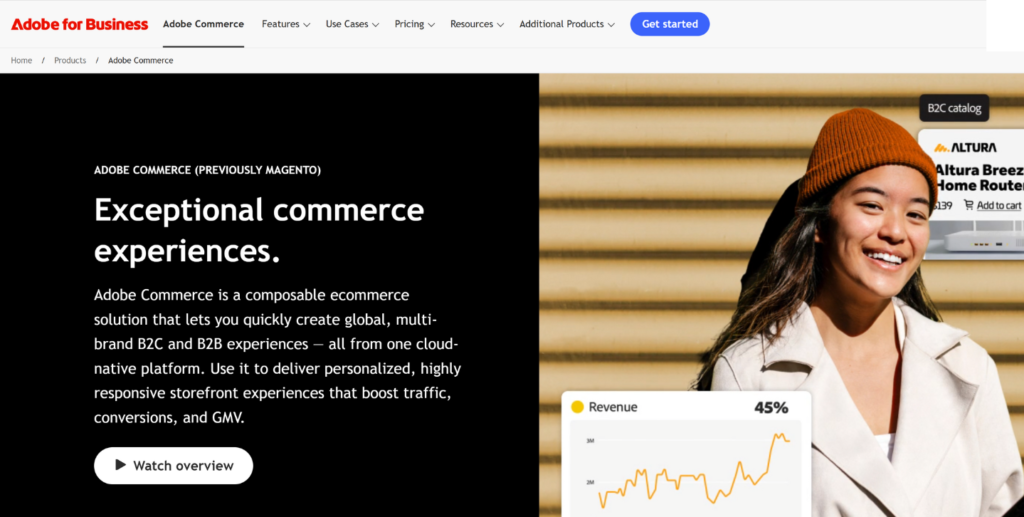
Best For: Large enterprises with complex eCommerce needs
Magento, now known as Adobe Commerce, is a high-performance, open-source platform tailored to enterprise-level operations. It offers total customization but demands significant technical resources.
Tip: Magento is not for beginners. Businesses with in-house developers or development partners like Silver WebBuzz are better equipped to manage Magento-based stores.
6. Shift4Shop

Best For: US-based sellers looking for a cost-effective solution
Previously known as 3dcart, Shift4Shop is a feature-rich platform with a unique offer: a free plan if you use their payment gateway.
Tip: Shift4Shop is a great low-cost solution for merchants who want premium features without monthly subscription fees.
7. Ecwid

Best For: Adding a store to an existing website or blog
Ecwid is not a full eCommerce platform but a plugin that turns any existing site into an online store. It’s lightweight, easy to install, and supports multichannel sales.
Tip: Ecwid is ideal for bloggers or small site owners who want to add eCommerce features without rebuilding their website.
8. PrestaShop

Best For: Businesses that want a customizable, open-source platform
PrestaShop is a free and highly flexible eCommerce platform. It offers full ownership and control, making it suitable for businesses with technical resources.
Tip: With the help of development partners like Silver WebBuzz, PrestaShop can be customized to meet complex eCommerce requirements.
9. OpenCart
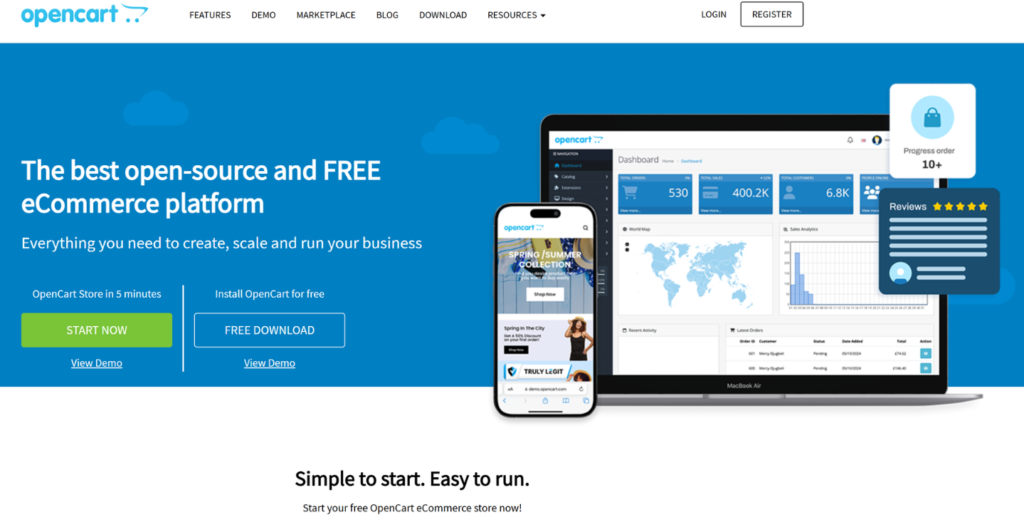
Best For: Startups and small businesses looking for a simple, free option
OpenCart is a lightweight, open-source platform that is easy to install and manage. It’s perfect for smaller operations with basic eCommerce needs.
Tip: OpenCart is a good fit for small businesses that want an affordable and flexible alternative to hosted platforms.
10. Shopline
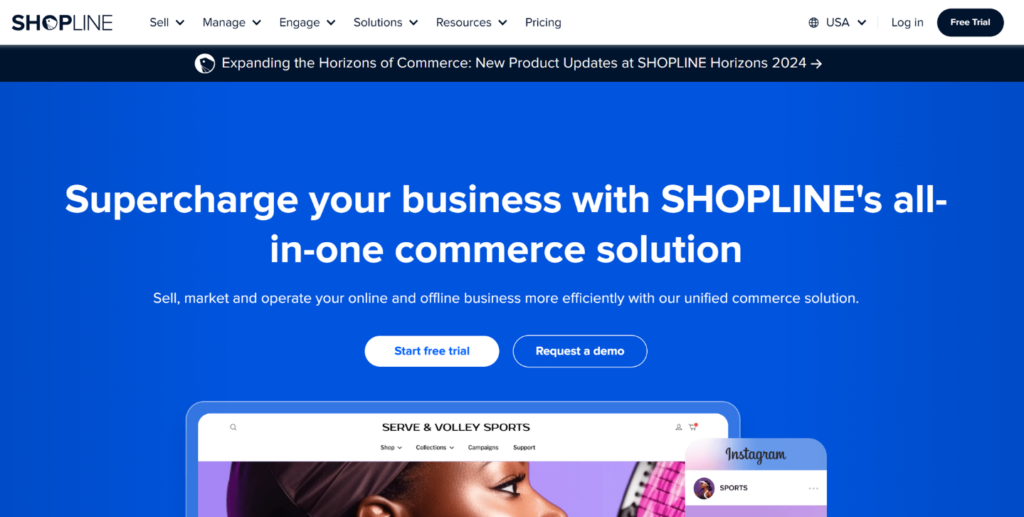
Best For: Brands targeting the Asian market
Shopline is a fast-growing Shopify competitor popular in Asia. It focuses on localized features and omnichannel capabilities.
Tip: Shopline is a top choice for businesses expanding into Asian markets and seeking local solutions.
Choose Silver WebBuzz For Your Next eCommerce Project
If you’re exploring Shopify alternatives for your next eCommerce venture, Silver WebBuzz is the partner you need. As a leading Shopify development company, we specialize in building powerful, scalable, and customized online stores—whether you choose Shopify or one of its top Shopify competitors like WooCommerce, BigCommerce, or Magento.
At Silver WebBuzz, we understand that not every business fits into a one-size-fits-all solution. That’s why we offer tailored Shopify development services as well as full support for a wide range of Shopify alternatives. Whether you’re looking to migrate platforms or build from scratch, our expert team is ready to deliver.
Looking to hire Shopify developer talent or explore flexible platforms that better suit your needs? Silver WebBuzz ensures high-performance results, no matter the platform. Trust us to bring your vision to life with the best solution for your business.
Conclusion
Finding the right Shopify alternative in 2025 depends on your business size, budget, and technical needs. From WooCommerce’s flexibility to BigCommerce’s robust features, each platform offers unique benefits. Take time to evaluate what matters most—customization, cost, or scalability—before making a decision.
Whether you’re a startup or an enterprise, there’s a perfect fit out there. Partnering with a trusted Shopify development company like Silver WebBuzz can make the switch smoother. With the right support, you can unlock your store’s full potential and confidently step into the next stage of your eCommerce journey.
